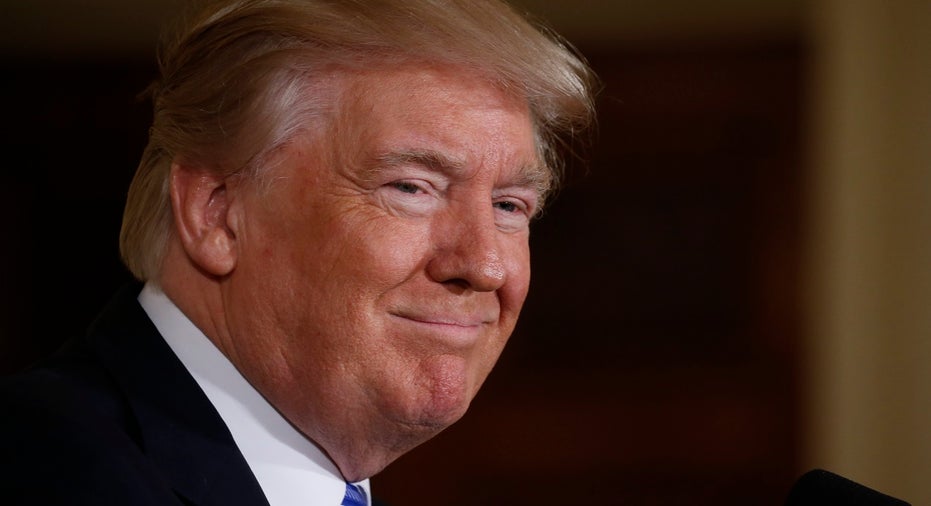Trump to begin reshaping the Fed with an eye on small banks

After the Fed’s earlier unanimous decision to monitor inflation “closely” and begin to unwind their balance sheet “relatively soon” President Donald Trump is making strides in his intent to loosen bank financial regulations.
Trump’s nominee for Federal Reserve Vice Chair Randal Quarles will go before the Senate for a confirmation hearing Thursday. Quarles could be a key player in the Trump administration’s push to relax regulations on community banks, ease restrictions on some speculative trading and soften annual tests of big banks' health.
Quarles is expected to be confirmed by lawmakers Thursday after which the nomination will go to the full Senate, with confirmation all but assured. The nominee, who now co-heads an investment firm, was a senior Treasury official under both Bush presidencies.
Trump's selection of Quarles marks one of his first efforts to reshape the powerful central bank, which he had criticized during his campaign for its low-interest rate policies, which he said were helping Democrats. Trump has two other vacancies to fill on the Fed's seven-member board of governors — and likely more to come next year, when the terms of both Yellen and Vice Chair Stanley Fischer expire. In an interview with the Wall Street Journal Tuesday, President Trump said he is considering re-nominating Yellen for another term or replacing her with national economic director Gary Cohn.
Still, how closely Quarles would push Trump's deregulatory agenda at the Fed remains unclear. The central bank has long asserted independence from the White House.
Quarles would be the Fed's first official chief of bank supervision. The Republicans have long condemned Dodd-Frank, arguing that it's shackled banks, stifled lending and dampened economic growth. The Treasury Department last month urged far-reaching changes to soften Dodd-Frank's rules.
But Quarles wouldn't be stepping into entirely hostile territory. Yellen herself has signaled an openness to changes, especially to ease the regulatory impact on community banks. One Fed governor, Jerome Powell, told Congress that the Fed should tailor its requirements to the size, risk and complexity of banks. He said the Fed is assessing the Volcker Rule.
In the meantime, Trump is populating other financial regulatory agencies with officials who can be expected to help carry out the drive to weaken Dodd-Frank rules.
Quarles is seen as a more moderate choice for the Fed than some more ideological candidates the Trump White House had considered. Phillip Swagel, an assistant Treasury secretary under President George W. Bush, says Quarles would bring "a sense of what has worked well in the post-crisis regulatory framework and what could be improved."
Still, at least some Democrats are vocally unhappy with the choice. They're ready to vote against him and raise issues of his background at the hearing.
Sen. Elizabeth Warren, the Democrats' most vocal critic of Wall Street, has called Quarles "a dangerous choice."
Sen. Sherrod Brown, the Banking Committee's senior Democrat, has said, "The last thing we need is another watchdog who believes that what's good for Wall Street is good for America."
The Associated Press contributed to this report.



















